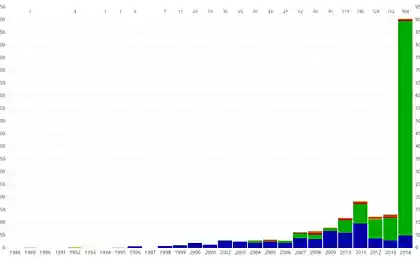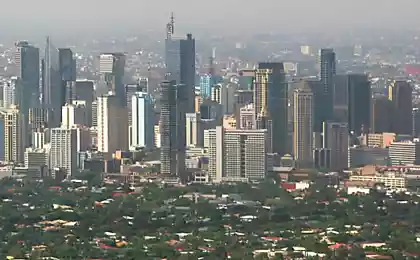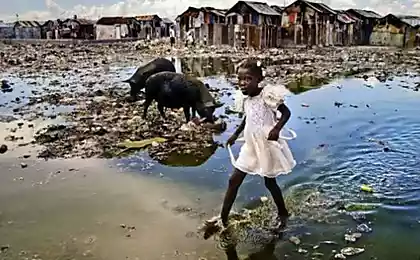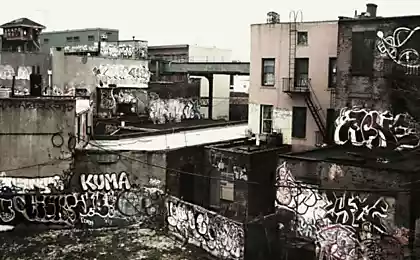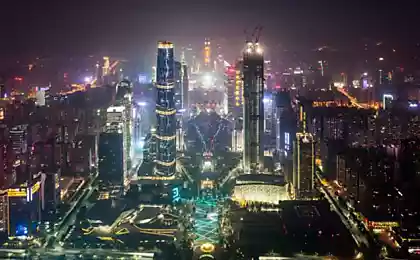626
The most colorful planet slums
Despite the frenzied pace of growth and development of urban infrastructure in the world there are still places where poverty and the appalling destruction go hand in hand.
In the capital of Venezuela - Caracas, nearly 70% of the local population lives in slums, which is literally "littered" every hill town.
18 photos + text.
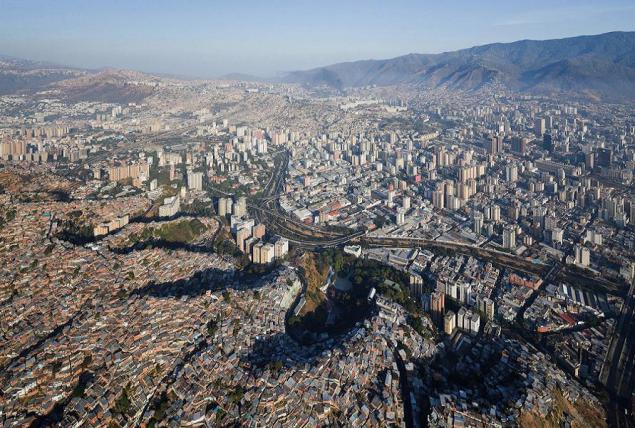
In the center of Caracas rises Tower of David - an unfinished 45-storey office skyscraper. Construction of the tower was halted in 1993 because of the first death, the main investor and then as a result of the Venezuelan banking crisis.
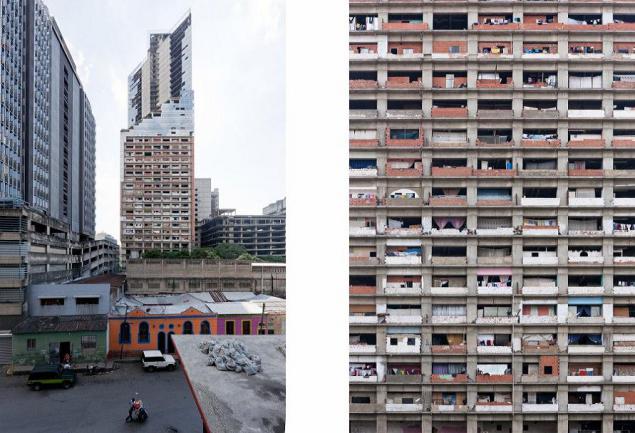
Due to the fact that the building since 2007, live poor inhabitants of Caracas, the skyscraper often referred to as "vertical slums". The building has no elevators and escalators, so the elderly and people with disabilities settle on the lower floors, and the young - at the top. Stairwells and other public spaces were painted with paint in order to remind Tower Condo.
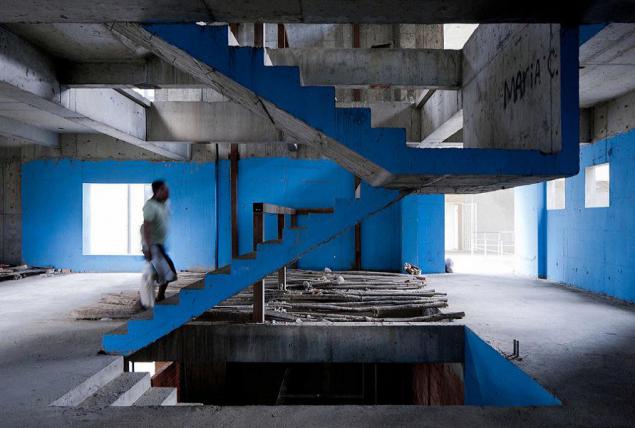
Since the average temperature in Caracas reaches 28 degrees, the guests of the tower is necessary to search all possible ways at least as it conditioned air. Such openings in the wall serve as "circulation system" air as well as help to orient the building.
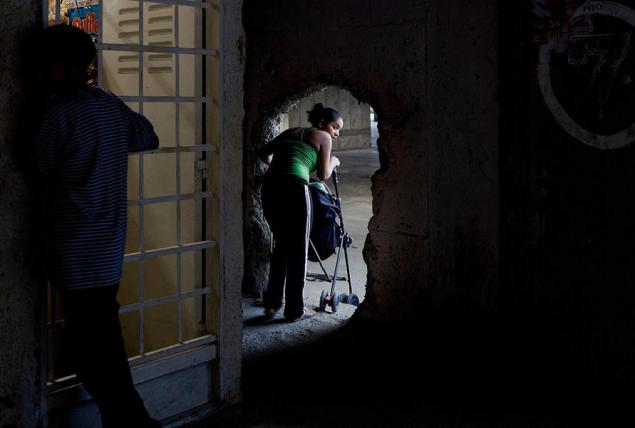
Once is not practiced in the ingenuity of local residents: any material that can be purchased or found, go to the cause. For example, the family uses the newspaper as wallpaper for the walls of his little corner.
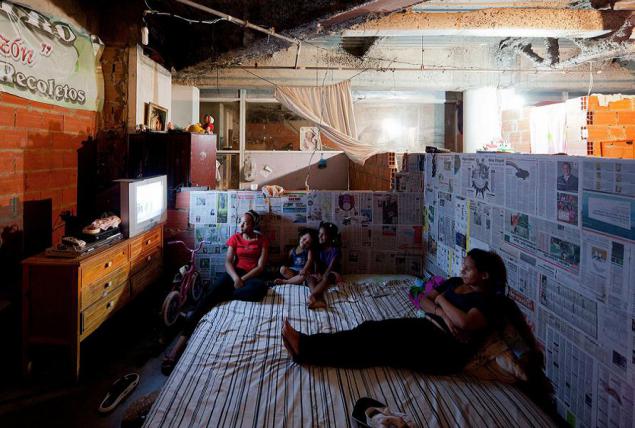
Each dwelling is decorated with special care and love - as far as one can afford it.
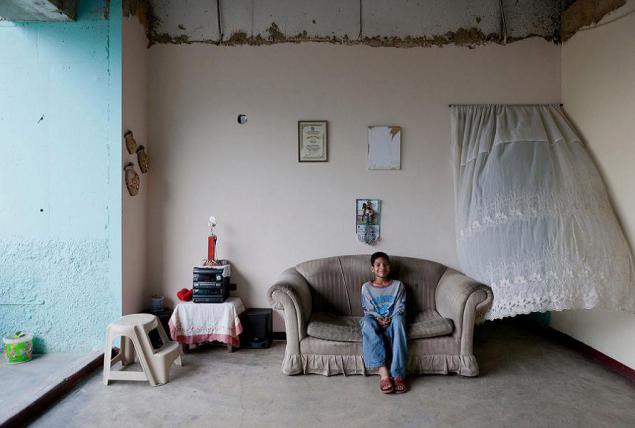
Tower resembles a mini-city with its shops, churches, arcades and even a gym, which is located on the 30th floor. Sports equipment is made from unused elevator equipment.
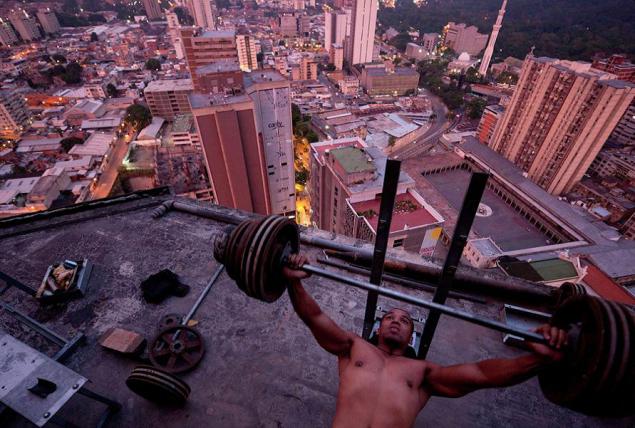
The Tower of David resembles a beehive, where everyone is part of the huge building and contributes to its changes.
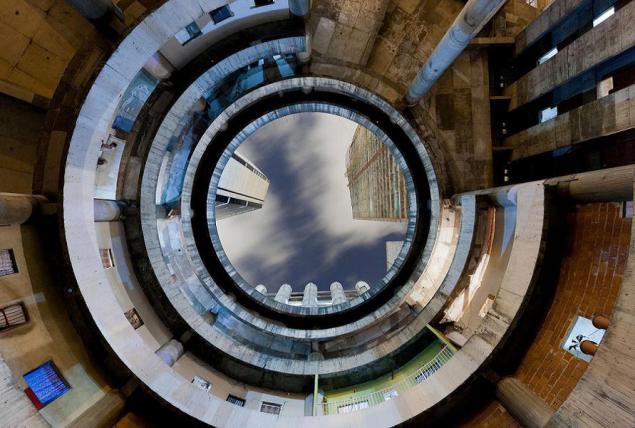
In the center of Lagos are some of the poorest slums in Nigeria - Makoko district, home to an average of 150, 000 people, whose dilapidated houses on stilts rise a few meters from the stinking muddy waters of the lagoon of the same name Lagos.
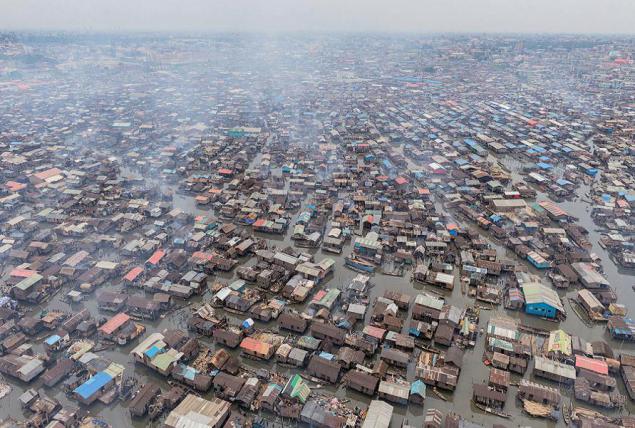
Makoko area is an example of the human ability to adapt to any and sometimes even the most terrible conditions.
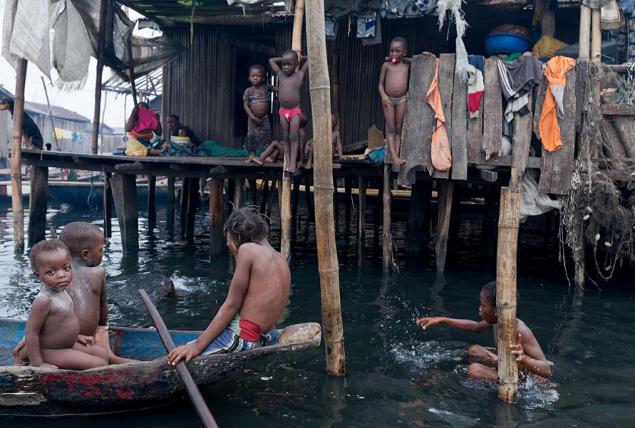
Barber, a cinema and other infrastructure Makoko was adapted under difficult living conditions of people in the water.
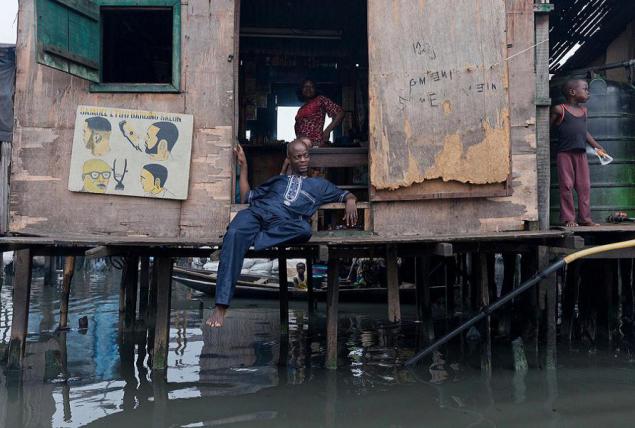
In spite of the poor and very difficult way of life, the people of Makoko are always happy to enjoy the live music of the Nigerian. At any time, you can see the musicians, sailing on the lagoon under the catchy African rhythms.
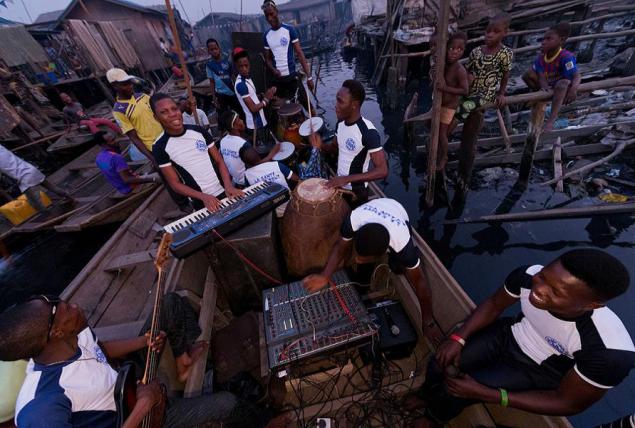
Forced evictions of Makoko is an urgent problem for its residents. In response to the government's plans for the liberation of the territory under the modern buildings, the Nigerian architect Kunle Adeyemi built a floating school for children Makoko. Now the building dominates the school district like a beacon, which gives people a chance at a full life.
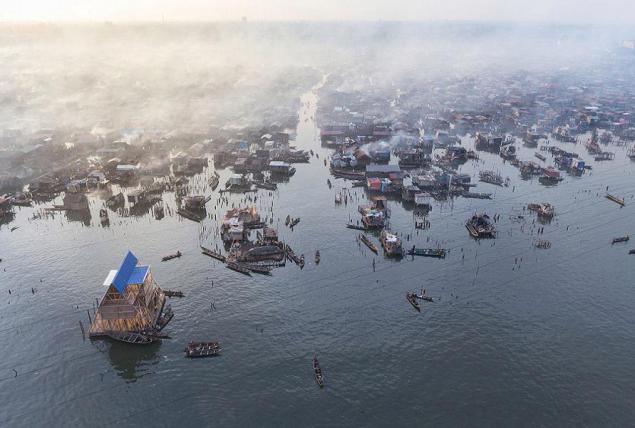
In the mountains Mokkatam that the south-east of Cairo (Egypt) is Zabbalin district - a community of Christian Copts, who live at the expense of collection and disposal of garbage from neighboring houses and business centers of the city.
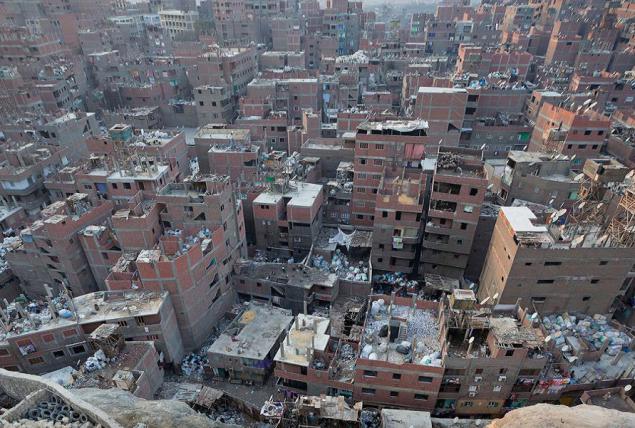
Collected waste scavengers bring in your town. There's trash is sorted, processed and transferred to third parties. For the local population the ubiquitous piles of garbage are the norm. For example, the window goes straight to landfill.
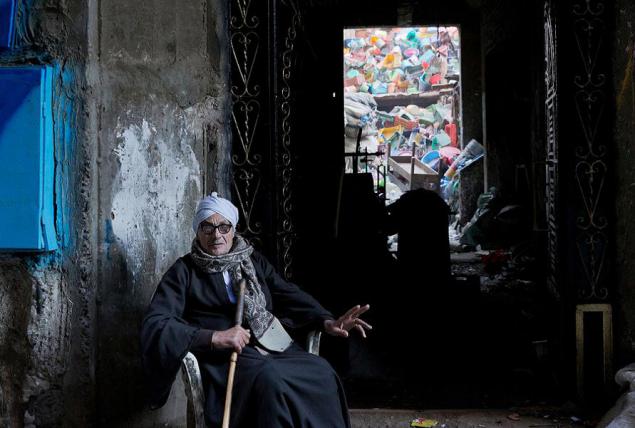
The interior of some houses in stark contrast to the chaos of street garbage.
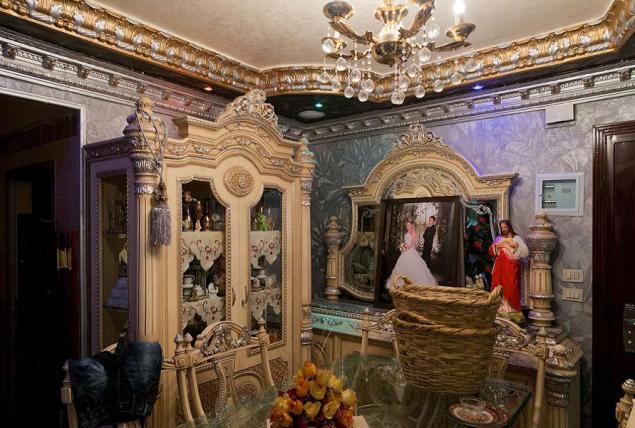
In the Chinese province of Shanxi, Henan and Gansu are still preserved underground dwellings - yaoduny resembling caves dug in the Loess Plateau. Until the early 2000s, almost 40 million people still live in settled homes that are seven meters below the ground surface.
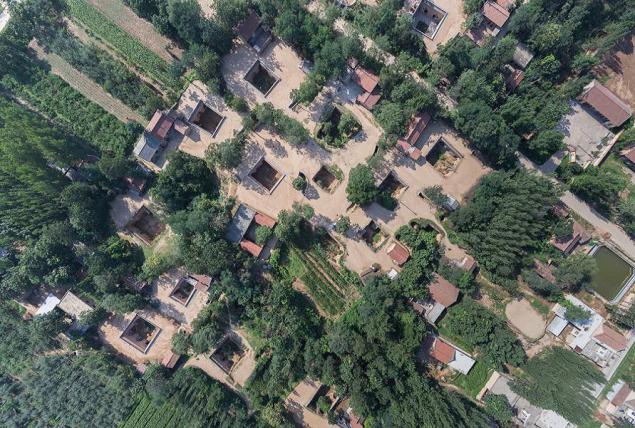
Building such yaoduna for poor farmers almost nothing worth: everything it needed - a shovel and a couple of assistants. All in yaodune looks very at home.
Source
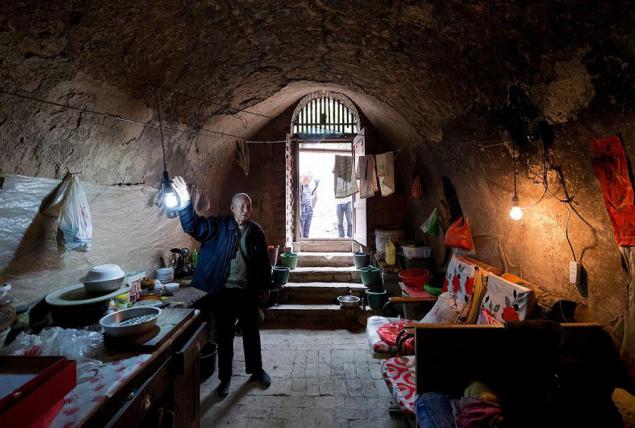
Source:
In the capital of Venezuela - Caracas, nearly 70% of the local population lives in slums, which is literally "littered" every hill town.
18 photos + text.

In the center of Caracas rises Tower of David - an unfinished 45-storey office skyscraper. Construction of the tower was halted in 1993 because of the first death, the main investor and then as a result of the Venezuelan banking crisis.

Due to the fact that the building since 2007, live poor inhabitants of Caracas, the skyscraper often referred to as "vertical slums". The building has no elevators and escalators, so the elderly and people with disabilities settle on the lower floors, and the young - at the top. Stairwells and other public spaces were painted with paint in order to remind Tower Condo.

Since the average temperature in Caracas reaches 28 degrees, the guests of the tower is necessary to search all possible ways at least as it conditioned air. Such openings in the wall serve as "circulation system" air as well as help to orient the building.

Once is not practiced in the ingenuity of local residents: any material that can be purchased or found, go to the cause. For example, the family uses the newspaper as wallpaper for the walls of his little corner.

Each dwelling is decorated with special care and love - as far as one can afford it.

Tower resembles a mini-city with its shops, churches, arcades and even a gym, which is located on the 30th floor. Sports equipment is made from unused elevator equipment.

The Tower of David resembles a beehive, where everyone is part of the huge building and contributes to its changes.

In the center of Lagos are some of the poorest slums in Nigeria - Makoko district, home to an average of 150, 000 people, whose dilapidated houses on stilts rise a few meters from the stinking muddy waters of the lagoon of the same name Lagos.

Makoko area is an example of the human ability to adapt to any and sometimes even the most terrible conditions.

Barber, a cinema and other infrastructure Makoko was adapted under difficult living conditions of people in the water.

In spite of the poor and very difficult way of life, the people of Makoko are always happy to enjoy the live music of the Nigerian. At any time, you can see the musicians, sailing on the lagoon under the catchy African rhythms.

Forced evictions of Makoko is an urgent problem for its residents. In response to the government's plans for the liberation of the territory under the modern buildings, the Nigerian architect Kunle Adeyemi built a floating school for children Makoko. Now the building dominates the school district like a beacon, which gives people a chance at a full life.

In the mountains Mokkatam that the south-east of Cairo (Egypt) is Zabbalin district - a community of Christian Copts, who live at the expense of collection and disposal of garbage from neighboring houses and business centers of the city.

Collected waste scavengers bring in your town. There's trash is sorted, processed and transferred to third parties. For the local population the ubiquitous piles of garbage are the norm. For example, the window goes straight to landfill.

The interior of some houses in stark contrast to the chaos of street garbage.

In the Chinese province of Shanxi, Henan and Gansu are still preserved underground dwellings - yaoduny resembling caves dug in the Loess Plateau. Until the early 2000s, almost 40 million people still live in settled homes that are seven meters below the ground surface.

Building such yaoduna for poor farmers almost nothing worth: everything it needed - a shovel and a couple of assistants. All in yaodune looks very at home.
Source

Source:
